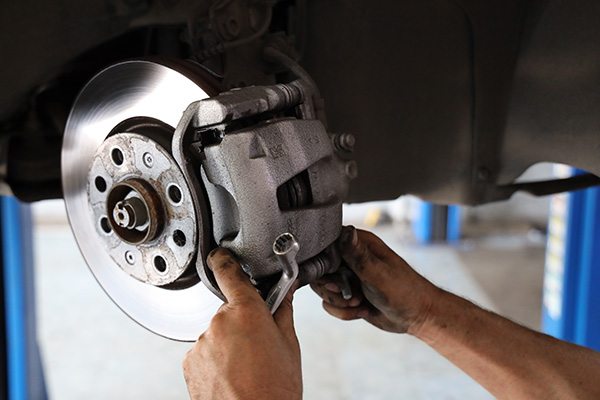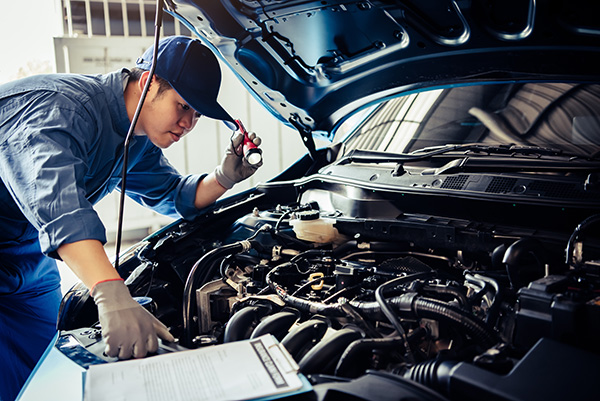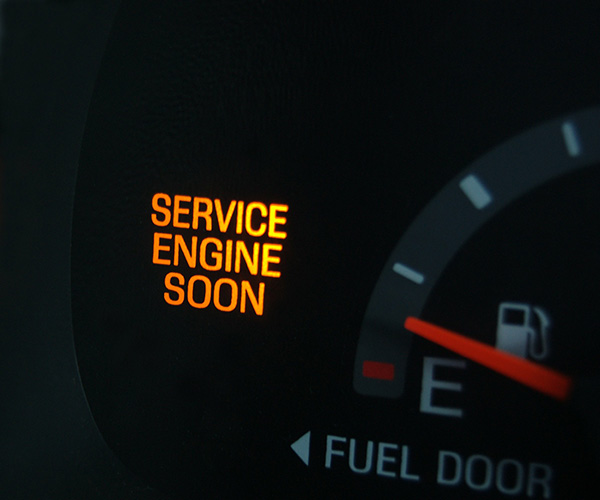Posted on 2/5/2026
When your Honda Ridgeline is due for an oil change, or when it needs major diagnostics and repairs call Oceanworks in Berkeley. Our mechanics know Honda vehicles at an expert level, so whether your Ridgeline needs minor service or major repairs, we can get your vehicle repaired and those repairs are covered by our 24 month / 24,000 miles warranty. Our Berkeley auto care facility is dedicated to providing a top-notch service and repair experience, just as the Honda is dedicated to providing high quality and high reliability vehicles. When you bring your vehicle to our auto repair shop, we offer broad range of Honda services and repairs - from manufacturer recommended services, to brake service, a/c refill (including R-1234YF refrigerant service), electrical system diagnostics and repairs, transmission service, suspension repairs, as well as check engine light diagnostics and engine repairs. Our shop offers friendly customer service, we offer OEM quality parts, and for your peace ... read more
Posted on 1/30/2026

A sticking brake caliper can be tricky because the car may still stop, and the problem can feel like a mild annoyance at first. You might notice the vehicle does not coast the way it used to, or one wheel seems to get dirty faster than the others. Then one day, you catch a hot, sharp smell after a short drive and realize something is dragging. If you learn the early clues, you can catch a sticking caliper before it cooks a rotor, ruins a set of pads, or leaves you with a pull that makes driving stressful. What A Brake Caliper Does And What Goes Wrong The caliper is the part that squeezes the brake pads against the rotor when you press the brake pedal. When you release the pedal, the caliper should let the pads back off so the wheel spins freely again. A sticking caliper happens when the release does not fully happen, so the pad keeps rubbing the rotor. This can be caused by a binding caliper piston, seized slide pins, a restricting hose, or hardware that is not mov ... read more
Posted on 1/19/2026
The Mazda CX-50 is built for drivers who want comfort during the week and adventure on the weekends. Whether you’re navigating city traffic Berkeley or the Bay Area, or heading out for longer drives, regular service plays a big role in keeping your CX-50 reliable. Skipping maintenance may not cause problems right away, but over time it can lead to reduced performance and expensive repairs, and regular maintenance is a requirement to keep manufacturer warranty in force. Routine Mazda CX-50 service usually starts with oil and filter changes, tire rotations and general inspections. We recommend oil changes every 5,000 miles or about twice a year, depending on driving habits. During these visits, our technicians will other subsystems of your vehicle, to catch early any developing problems. With passage of time, and increased mileage, your Mazda will need more care. Cabin and engine air filters will need replacement. Spark plugs are another important item, transmission fluid service ... read more
Posted on 12/19/2025

Holiday road trips are hard on cars in ways many drivers do not notice right away. Hours of steady highway speeds, winter weather, and heavy traffic can quietly wear down tires, brakes, fluids, and suspension parts. A few smart services after the holidays keep small issues from turning into big repairs. 1. Inspect and Rotate Your Tires After Long Highway Miles Tires usually show holiday wear first. Long straight stretches can flatten the center of the tread on overinflated tires, while tight city parking and last-minute lane changes chew up the edges. You might notice new vibrations, humming noises, or a slight pull in the steering wheel once you are back to normal driving. A post-trip tire visit should include a careful tread check, a look for nails or sidewall damage, and setting pressures to the specification on the door jamb. Rotating the tires at this point helps even out any new wear patterns from the trip. That simple step gives you a better grip for winter c ... read more
Posted on 12/17/2025
Your Honda Pilot can serve in multiple roles – from weekend family trips to daily commutes to school and to work. Given the sorry state of the Bay Area roads, chances are its suspension will be put under undue strain. From potholes to uneven pavement, the suspension keeps your ride smooth and steering predictable. When parts begin to wear, comfort and safety can suffer without much warning. That’s why regular Honda Pilot suspension service is so important. At Oceanworks auto care shop in Berkeley we help Honda Pilot owners stay ahead of suspension problems. We can inspect key components such as shocks, struts, control arms, bushings, and wheel bearings. These parts naturally wear over time, so regular inspections are highly recommended. If the parts are at the end of their useful life, or sustained damage, we can perform shocks and struts, bushings or control arms replacements. .One of the most common suspension-related repairs on the Honda Pilot involves worn shock ... read more
Posted on 11/28/2025

Automatic shutoff is designed to stop fuel flow the instant your tank reaches a safe level. Most of the time, it works perfectly. Still, drivers occasionally experience overflows, splashback, or a nozzle that will not stop when expected. Here is what actually happens inside the nozzle, why rare failures occur, and the simple steps you can take if a pump misbehaves. How Automatic Shutoff Is Supposed To Work Inside every nozzle is a tiny sensing port near the tip. As fuel flows, air is drawn past this port and up a small tube by a Venturi vacuum inside the handle. When rising gasoline covers the port, airflow changes, the vacuum spikes, and a diaphragm trips the latch to close the trigger. That click you hear is the mechanical shutoff doing its job. Normal Click-Offs Versus Malfunctions Early click-offs are common and usually not a failure. Foam, a twisted filler neck, or fast flow can fool the nozzle into thinking the tank is full. True malfunction ... read more
Posted on 11/25/2025
Keeping your Chrysler in top condition means enjoying a ride that’s smooth, powerful, and safe every day. Whether you own a practical Pacifica for the family or a Chrysler 300, consistent maintenance helps prevent costly problems and keeps your vehicle performing the way it was designed to. At Oceanworks Berkeley your Chrysler is cared for by skilled professionals committed to quality service. All vehicles need regular maintenance, and so does your Chrysler. Our ASE-certified technicians use advanced diagnostic equipment to quickly identify issues and carry out repairs using quality parts. This in turn allows us to provide you with 2 year / 24,000 mile warranty. Over time, your Chrysler will need many services, and hopefully few repairs. Here are the ones we see a lot as we work on Chrysler vehicles: Engine Diagnostics & Repairs – If your check engine light turns on or your vehicle starts acting differently, our experts will loca ... read more
Posted on 11/20/2025
Tesla vehicles are marvels of modern engineering, in particular the regenerative braking system. Not only does it recover some of the energy during braking, but it is also easy on the brake pads and the braking system in general. But there is one aspect of the braking system that will need regular maintenance – brake fluid. Brake fluid needs to be replaced with some regularity. Tesla recommends brake fluid testing and replacement every four years. We disagree – brakes are vital to your safety, and Tesla, like all EVs, is a heavy vehicle (the high voltage battery is very heavy). So brakes need to be in optimal shape. The reason for brake fluid replacement is twofold. First and foremost, brake fluid is hygroscopic – it attracts and absorbs moisture from the environment. When the water content of the brake fluid exceeds safe levels, brake fluid must be replaced, or you are risking sub-standard braking, or in extreme cases, an outright brake failure. The second reason ... read more
Posted on 10/31/2025

If you keep topping off between oil changes, your car is trying to tell you something. Modern engines are efficient, but steady oil loss is not normal. When the dipstick reads low well before the next service, it usually points to wear, a leak, or a ventilation issue that needs attention. Below are the most common causes, what to watch for, and when it is smart to schedule an inspection. Worn Piston Rings or Cylinder Walls Piston rings seal the gap between the pistons and cylinder walls so combustion stays put and oil stays out. As those rings wear or the cylinder walls get scored, oil can slip past and burn inside the cylinders. A classic clue is blue or gray smoke from the tailpipe, especially during hard acceleration or after a long idle. Even if you do not see constant smoke, the engine may still be burning oil faster than it should. Valve Seal Leaks Valve seals keep oil from dripping into the combustion chamber. Age and heat can harden the s ... read more
Posted on 10/12/2025
Your Subaru’s brakes are one of its most important safety systems. Whether you’re navigating Bay Area traffic or heading out for a weekend drive, healthy brake pads give you the stopping power you need when it matters most. Over time, those pads wear down with every stop, making regular inspection and timely replacement essential for your safety and your vehicle’s performance. At Oceanworks in Berkeley we help Subaru owners keep their vehicles braking smoothly and safely—with expert service, quality parts, and quality repairs. Brake pads don’t last forever, and catching early warning signs can prevent costly repairs later on. Here are a few clues that it’s time to schedule a replacement: Squealing or grinding noises when you press the brakes Vibration or pulsing when braking Spongy brake pedal sensation or longer stopping distances If you notice any of the above symptoms, call Oceanworks for an appointment. Driving with worn brake pads can damag ... read more